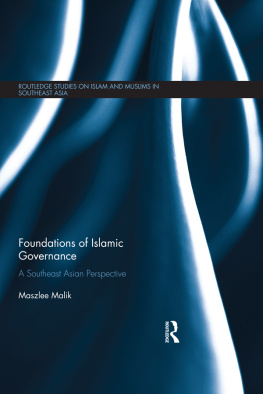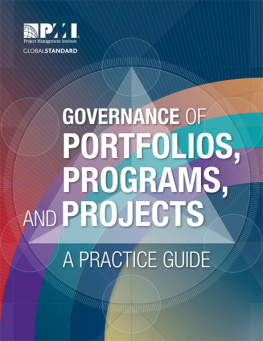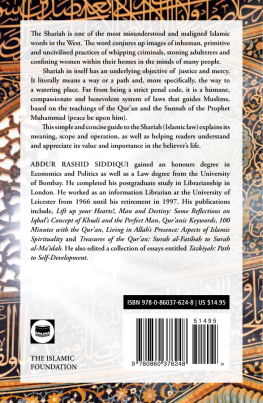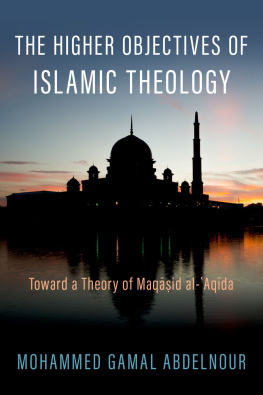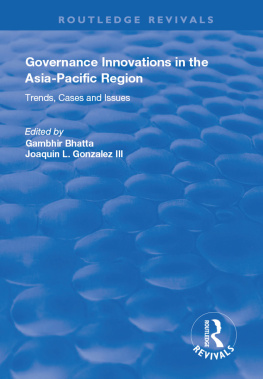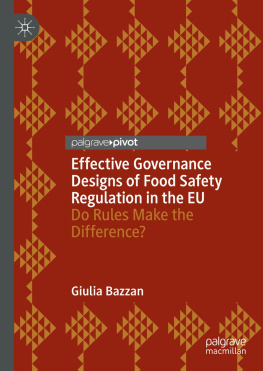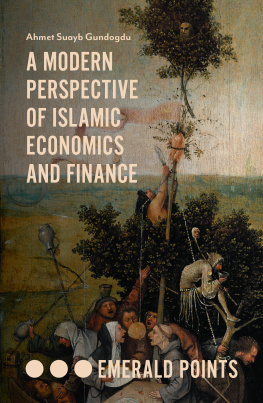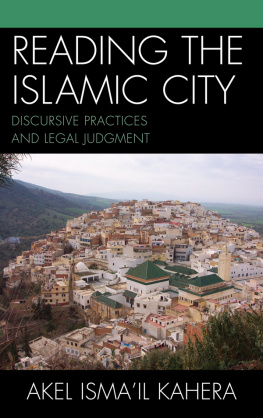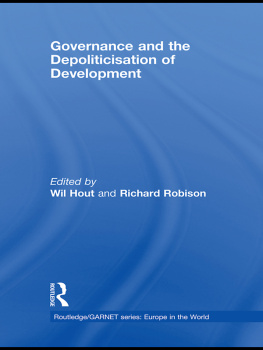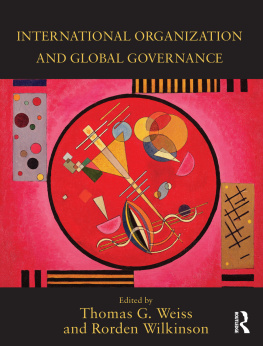First published 2017
by Routledge
2 Park Square, Milton Park, Abingdon, Oxon OX14 4RN
and by Routledge
711 Third Avenue, New York, NY 10017
Routledge is an imprint of the Taylor & Francis Group, an informa business
2017 Maszlee Malik
The right of Maszlee Malik to be identified as author of this work has been asserted by her in accordance with sections 77 and 78 of the Copyright, Designs and Patents Act 1988.
All rights reserved. No part of this book may be reprinted or reproduced or utilized in any form or by any electronic, mechanical, or other means, now known or hereafter invented, including photocopying and recording, or in any information storage or retrieval system, without permission in writing from the publishers.
Trademark notice: Product or corporate names may be trademarks or registered trademarks, and are used only for identification and explanation without intent to infringe.
British Library Cataloguing in Publication Data
A catalogue record for this book is available from the British Library
Library of Congress Cataloging in Publication Data
Names: Maszlee Malik, 1974, author.
Title: Foundations of Islamic governance : a Southeast Asian perspective /
by Maszlee Malik.
Description: New York, NY : Routledge, [2017] | Includes bibliographical
references and index.
Identifiers: LCCN 2016035078| ISBN 9781138219748 (hardback) |
ISBN 9781315414652 (ebook)
Subjects: LCSH: Islam and state. | State, The. | Political cultureIslamic
countries. | Islam and stateSoutheast Asia.
Classification: LCC BP173.6.M28 2017 | DDC 322/.10959dc23
LC record available at https://lccn.loc.gov/2016035078
ISBN: 978-1-138-21974-8 (hbk)
ISBN: 978-1-315-41465-2 (ebk)
Typeset in Galliard
by Wearset Ltd, Boldon, Tyne and Wear

International institutions have promoted a good governance agenda as an archetypal model to achieve development for underdeveloped and developing countries. However, closer scrutiny can trace the root of this agenda back to the hegemonic nature of modernity that proposes a specific meta-narrative upon others, as part of Eurocentrism. Many, however, have criticized this Eurocentric paradigm, since the non-Western communities with their own constructed version of good in governance have also proven their ability to develop and prosper in the present or in the past. Thus, the cultural and value-laden nature of such vernacular concepts provides the rationale for the existence and practice of other paradigms. In line with this argument, Islam, with its long history of governance and richness of its values can be considered as another alternative, which should be thoroughly examined to disclose and depict its conceptualization and paradigm of good governance.
The aim of this book, thus, is to explore and analyse the Islamic axioms, foundation principles and values underpinning the field of governance in an attempt to construct the architectonics of a new systemic and dynamic theory and formulate the articulation of Islamic governance. This discursive and abstract, rather than being an empirical exercise, assumes to produce a good governance framework within its own formulation through a value-shaped dynamic model according to maqasid al-Shariah (higher objective of Shariah ) by going beyond the narrow remit of classical and contemporary discussions produced on the topic, which propose a certain institutional model of governance based on the classical juristic ( fiqh ) method. In this new dynamic paradigm, a discourse-oriented approach is taken to establish the philosophical foundation of the model by deriving it from Islamic ontology, which is then articulated using the Islamic epistemological sources to develop and formulate the discursive foundations of this new theoretical framework. A deductive method is applied to the ontological sources and epistemological principles to explain the architectonics of this new theory, which are represented by the constructed axioms, which later help to articulate the working mechanism of the proposed Islamic good governance framework through a specifically formulated typology to function as an alternative conceptualization of good governance. In doing so, the author has tried to take into consideration the current reality in bringing the text into reality by resorting to maqasid al-Shariah (higher objective of Shariah ). This research is an attempt by the author, who came from the multi-religious and multi-cultural background of Southeast Asia, which requires Muslims to always be cautious when dealing with people, not to impose literally the Islamic texts and jurists views from a different time and background on the issues of governance.
This study, through an exclusive analytical discursive approach, finds that Islam, as one of the major religions in the contemporary world, with the claim of promising the underpinning principles and philosophical foundations of worldly affairs and institutions, through a micro method of producing homoIslamicus could contribute towards the development of societies by establishing a unique model of governance from its explicit ontological worldview through a directed descriptive epistemology. Thus, the research on governance in this study does not only focus on the positivistic materialist components such as institutions or mechanisms or growth per se, but it encompasses the value-laden holistic nature of human life in accordance with the Islamic worldview as an important contribution. In doing so, it formulates the good governance in Islam in relation to the conceptualized ihsani social capital, which constitutes the main thrust of the constructed model. Nonetheless, this generative (non-cumulative) paradigm of looking into the governance issue should be viewed as an incomplete certainty as the production of the continuous ijtihad (reasoning) progression will continue to reveal ways through which its working mechanism can be expanded along with potential developments in its philosophical formation.
| AHDR | Arab Human Development Report |
| CIPFA | Chartered Institute of Public Finance and Accountancy |
| E-HDI | Ethics-augmented Human Development Index |
| EU | European Union |
| FBO | Faith-based Organisations |
| GDP | Gross Domestic Product |
| GNP | Gross National Product |
| GWG IIAS | Governance Working Group of the International Institute of Administrative Sciences |
| HDI | Human Development Index |
| HIC | High-income Category |
| IDB | Islamic Development Bank |
| IFI | International Financial Institutions |
| IGI | Islamic Governance Index |
| IMF | International Monetary Fund |
| ISI | Import-substitution industrialization strategy |
| LIC | Low income category |
| LMC | Low middle income category |
| MDGR | Millennium Development Goals Report for the Arab Region |
| MDGs | Millennium Development Goals |
| NGO | Non-Governmental Organisation |
| NPE | New Political Economy |
| NPM | New Public Management |
| OECD | Organisation for Economic Co-operation and Development |
| OIC | Organization of the Islamic Conference |
| PPP | Purchasing Power Parity |
| UDHR |

